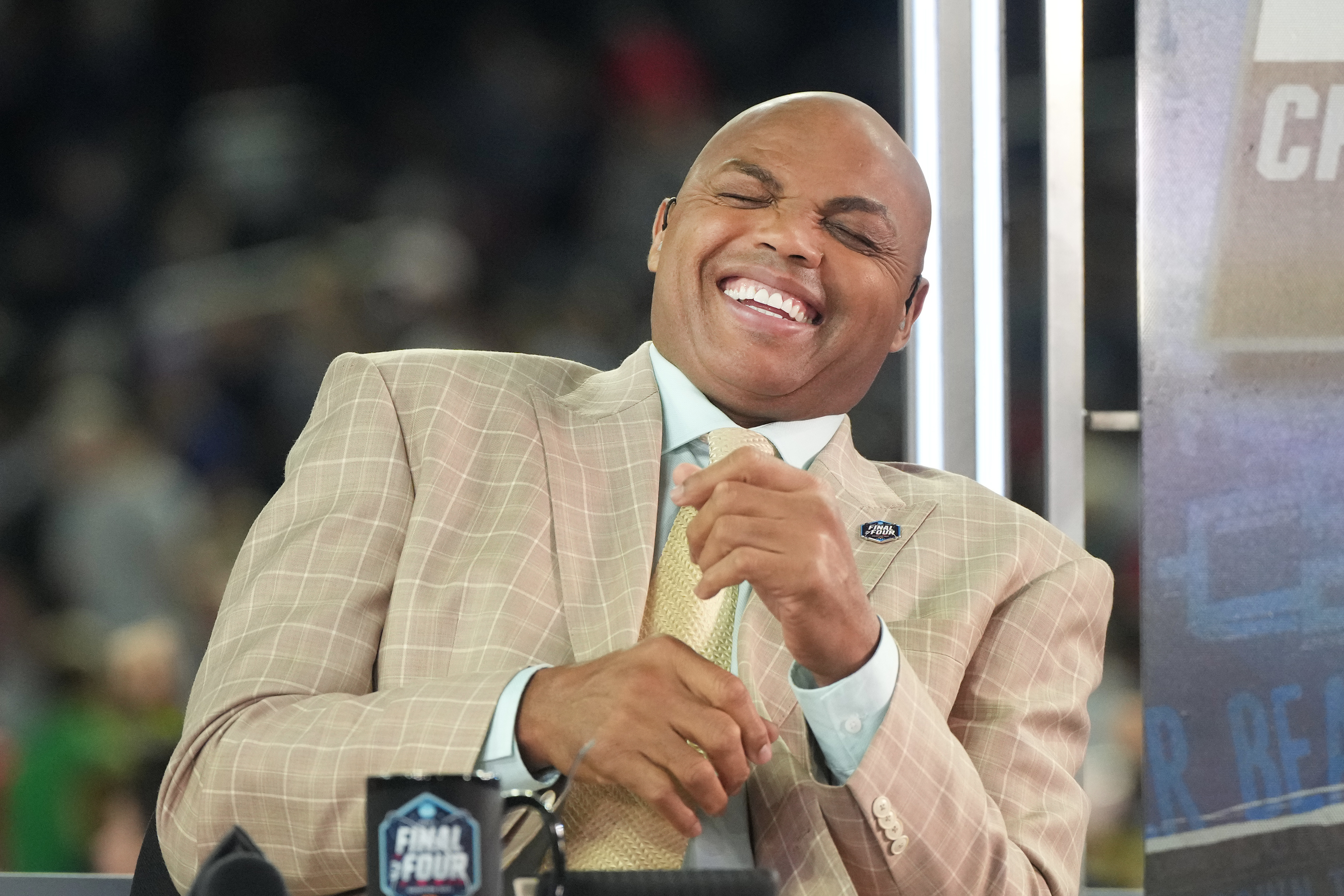
Each weekend, Next TV writers Daniel Frankel and David Bloom jot down their thoughts and impulses in this column. Here's their latest:
DANIEL FRANKEL: Well David, happy Father's Day weekend. We've come to the end of a somewhat slow early summer week in TMT. But there was some action: Shari Redstone pulled the plug on David Ellison, NBCUniversal (somewhat out of nowhere) decided to order an ambitious new scripted series for one of its linear cable networks, and Jerry West (the true "GOAT" of the $76 billion NBA) passed on at 86, and Charles Barkley announced his retirement, effective upon when TNT's Inside the NBA likely ends its run next year. Oh, and Netflix wrote a big check to Shawn Ryan, and it also deftfly moved in on competitive eating after the Nathan’s hot dog people dumbly decided to disqualify Joey Chestnut. As brilliant Pavement lyricist Steve Malkmus once wrote and sang, "So many fortresses and ways to attack."
DAVID BLOOM: Let's take a moment to honor The Logo, as West was nicknamed when an outline of him dribbling a ball became what’s still the league’s actual logo. Given West's central roles as Hall of Fame player, coach and general manager who helped the Lakers to 19 NBA Finals trips and seven rings, his presence on the logo is a nice metaphor.
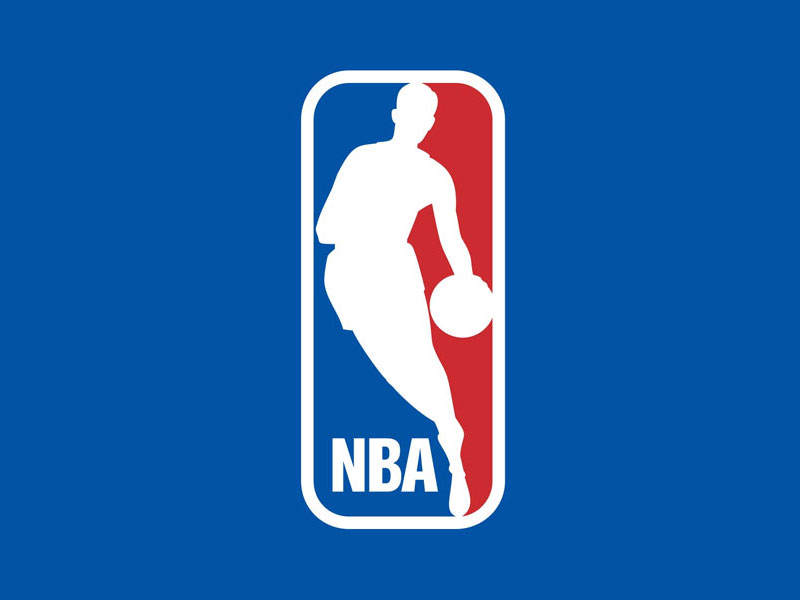
He truly helped shape the modern league over many decades, paving the way for that insanely lucrative TV deal. It's worth remembering that when West was playing (1960 to 1974), the NBA Finals weren’t even televised live. As the Sports Business Journal put it, for the league's first 35 years, even finals television coverage was “choppy.” West's passing also reminds me of the rollicking, unfortunately canceled-too-soon HBO/Max series Winning Time: The Rise of the Laker Dynasty.
West wasn't happy about his intense, self-lacerating (and terrific) portrayal by Australian(!) actor Jason Clarke. But the series felt true to what we knew about West and all the era's many complicated Lakers personalities, including at least some of their warts. It was great fun to watch, and a welcome contrast to all those superstar-approved "documentaries" festooning the streaming services these days.
FRANKEL: The Jerry West passing was notable in many ways. I argued this week -- with admittedly not enough elbow grease -- that West was the true "GOAT" of a league that just sold its TV rights for $76 billion.
Also read: Jerry West, the True ‘GOAT’ of the Modern $76 Billion NBA, Dies at 86
He was arguably a top 10 player of all time, a 14-time All-Star who led the Lakers to the NBA Finals nine times. And he is considered the second-greatest player personnel executive ever, only surpassed by Red Auerbach, who West both despised and greatly respected. Everybody knows he was a complicated dude, but there are a lot of folks who knew him well who take issue with the Winning Time portrayal of him. I actually like Jason Clarke's work — he stood out in Zero Dark Thirty, and that wasn't easy to do, given the level of that cast.
But as NBA writer David Alridge noted about West in The Athletic this week, “The portrayal of him in the HBO miniseries Winning Time was an ugly caricature of his manic intensity, one that made his friends and colleagues justifiably angry. He wasn’t someone who foamed at the mouth and spent his days trashing the offices at The Forum in some blinding rage. He didn’t big-time people.”
Also read: HBO Says ‘Winning Time’ Hatchet Job on Jerry West Was Based on ‘Extensive Factual Research’
Jeanie Buss, the daughter of late Lakers owner Jerry Buss who serves as part owner and team president, claims she had nothing to do with the production of the HBO series. But it is such a love letter to her and her late father. It's notable that there was a palpable estrangement between West and Lakers management at the time of his passing. L.A. Times columnist Bill Plaschke even wrote (again) about it this week in a column headlined, “Lakers legend Jerry West's final legacy sadly includes estrangement from Lakers.”
While the Los Angeles Clippers, the team West last worked for, amply memorialized the legend Wednesday morning, Jeanie Buss didn't release her own statement on Instagram until the afternoon. “Today is a difficult day for all Laker fans,” she wrote. “I know that if my father were here, he would say that Jerry West was at the heart of all that made the Lakers great. He was an icon to all — but he was also a hero to our family. We all send our sympathies to Karen and the West family.”
On behalf of Steve Ballmer, on the passing of Jerry West. pic.twitter.com/P3Z5nIMDWbJune 12, 2024
Responded Plaschke: “Again, it was nice, but compared to past Lakers tributes for fallen stars such as Elgin Baylor and Tex Winter, the team’s response was underwhelming for a man who deserved so much more.” Back to more relevant business trade topics, did you happen to read The Ankler's argument that Paramount — and maybe all of debt-ridden Hollywood — should be bailed out by Joe Biden? Just what this man needs in a life-or-death election struggle: To be seen as the radical socialist who bailed out Hollywood.
BLOOM: As for Shari Redstone finally saying no to the David Ellison/Redbird buyout pitch, I was not surprised. It was a Rube Goldberg-esque proposal, a wildly complicated process forced by Paramount’s fundamentally horrible governance structure, that was batted around for many, many months, with repeated tweaks to its terms that still proved inadequate to Redstone’s needs. That long back and forth says plenty about the questions surrounding the deal.
Ellison promised to keep the Redstone empire sort-of intact, buy out some of other shareholders’ stock at a premium, pay down debt, and keep the company public while creating vast alleged profits and growing margins.

That vision always seemed, ahem, unduly optimistic. Getting to yes was further handicapped by Redstone’s increasing fears that her big payday would set off a blizzard of shareholder lawsuits from everyone else holding stock. Occam’s razor holds that the most straightforward answer is most likely the correct one. Ellison's proposal was absolutely not the most straightforward answer.
So now what? A couple of new-ish buyers supposedly want to buy out Redstone's National Amusements, but that still leaves Paramount with a three-headed leadership, $14 billion in debt, and plans to put spending-sinkhole Paramount Plus in a joint venture with … someone. The clock is ticking on debt payments, adding urgency. National Amusements has its own spending hole, and no longer can count on Paramount dividends to cover its expenses. Sony and Apollo are still hanging around, reportedly, with their Occam-forward $26 billion plan. Maybe Warner Bros. Discovery steps in for CBS and the broadcast stations? Paramount shares, meanwhile, dropped 16% this week.

FRANKEL: What about that crazy idea of nationalizing Paramount?
BLOOM: The Ankler piece quite amused me, given how completely unmoored it is from political reality. It’s laughable to compare bailing out bankrupt auto companies (with many thousands of swing-state workers) to political prospects for a bill sending cash to poorly managed but cash-generating California media companies. These are the media clowns who happily dove into oceans of debt to fund misguided mergers and misunderstood new distribution models. Beyond that, studios don’t even provide the bulk of Hollywood jobs. So who would you bail out? Paramount, with Shari’s incredible shrinking family fortune? Warner Bros. Discovery, with David “Cash Flow” Zaslav’s $50 million paycheck? YouTube is the most-watched streaming service. Should Congress bail out those 17-year-old YouTube creators making videos in their mom’s back bedroom? Probably not.
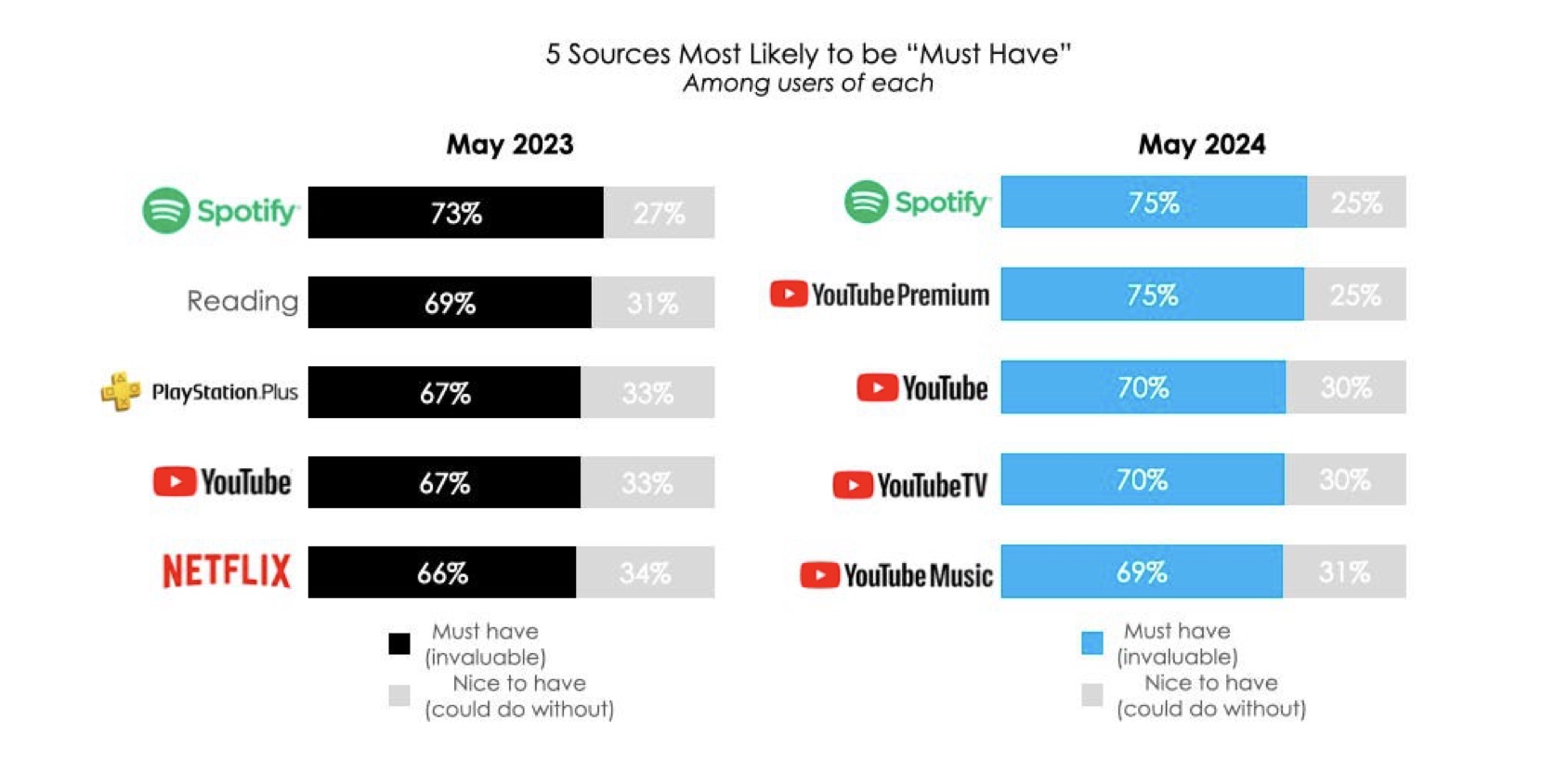
By the way, Hub Entertainment Research put out a study this week showing that users rate their five “must-have” subscription services as Spotify and four YouTube-related offerings, including Premium, YouTube TV and YouTube Music. Not even Netflix made the list, never mind those unloved Hollywood studios. Yet another suggestion that YouTube is eating Hollywood alive. Time to get out your ring light. Two behind-the-scenes workers complained to me at a party that California should increase its film tax credits. The state calculates the program has generated more than $6 billion in economic impact since 2020. I find such impact projections dubious, but regardless, the credits certainly help producers at the margins. More tax credits still won’t make the studios commission more shows. They’re cutting back post-Peak TV with a performative penury to persuade Wall Street they’re good financial stewards rather than glad-handing hacks with 30-room Bel Air mansions.

Business models are changing dramatically, and some are being hit hard. I should know how badly that can go; I’ve worked in journalism for four decades, writing about technology while my industry pretty much ignored what tech was doing to its business model. This past week, the Washington Post canned Executive Editor Sally Buzbee, whose editorship stacked up a batch of Pulitzers, but also sent readership down a shocking 50%, incurring $77 million in losses last year. Should we bail out Post owner Jeff Bezos too? How ever will he afford another $500 million yacht?
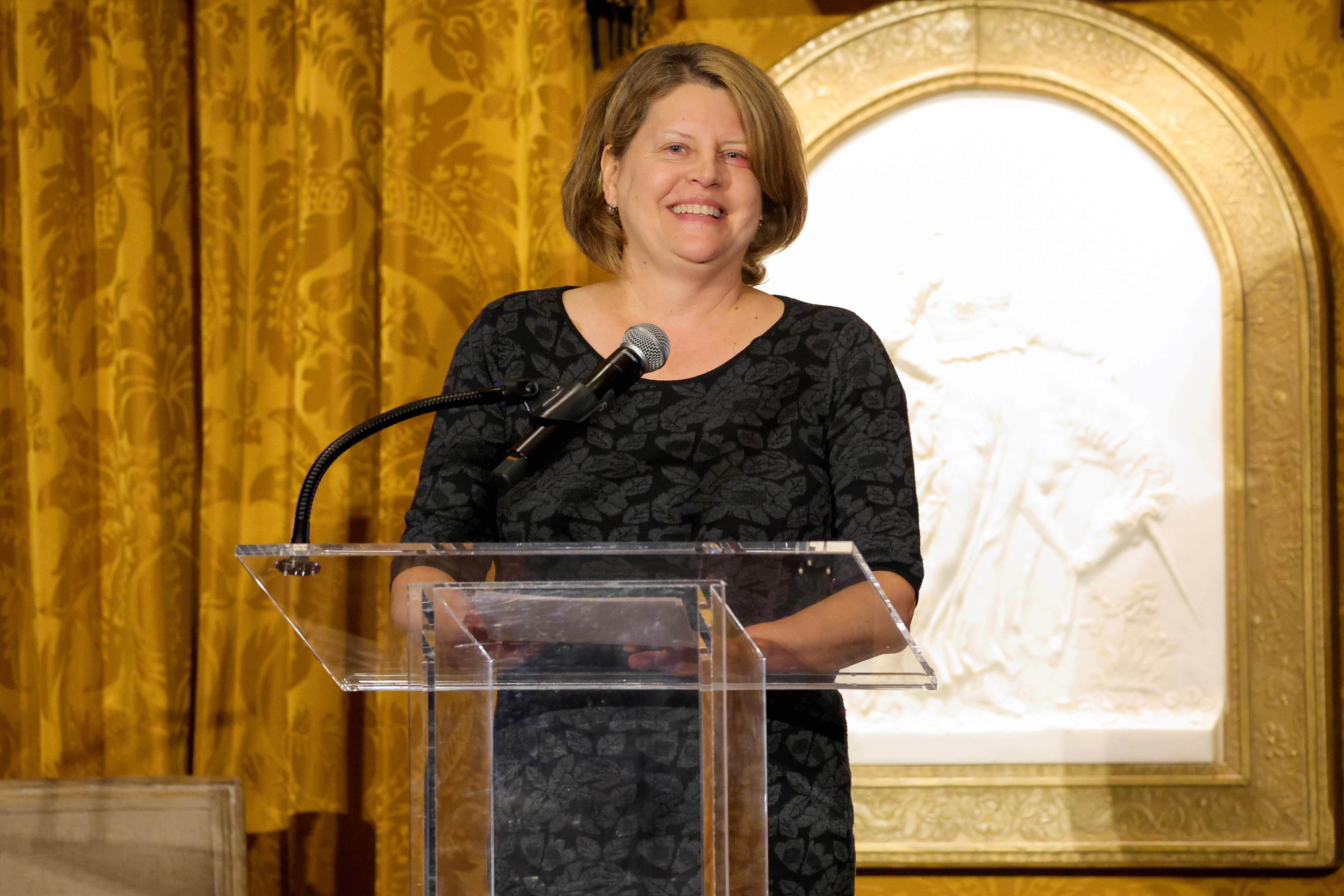
FRANKEL: The same week, Hub put out another study suggesting the bundle consumers really want has home broadband, mobile, Netflix and a movie service. Toss in a music streaming service at No. 5.
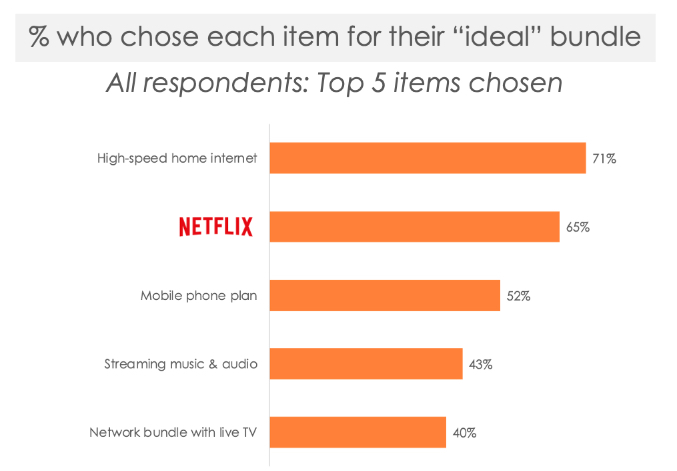
BLOOM: These little brain bombs from Hub, Antenna and a couple of other research firms are always intriguing, especially because I actually understand their methodology compared to some of their high-flying competitors. This BYOBundle accords with what I generally think of as “the basics of modern connected life.” It also helps explain the potential power of Apple’s mega-bundle, Apple One, in the imminent era of "Apple Intelligence.” The company unveiled its version of deeply integrated artificial intelligence at this week’s World Wide Developers Conference, promptly swelling its market capitalization by an astonishing $300 billion, or roughly the equivalent of three Boeings. As with some other big Apple announcements, Apple Intelligence felt both game-changing and forehead-smackingly inevitable. Apple’s approach keeps everyday AI inquiries on your device with all your deep personal information and details, sends more complicated questions to its own secure servers that don’t keep any of your data, and allows you to tap OpenAI (and eventually other third-party providers) if it’s a really complex or global prompt. OpenAI won’t get to record your prompts, and isn’t getting paid by Apple or its customers for access to 2.2 billion Apple accounts.
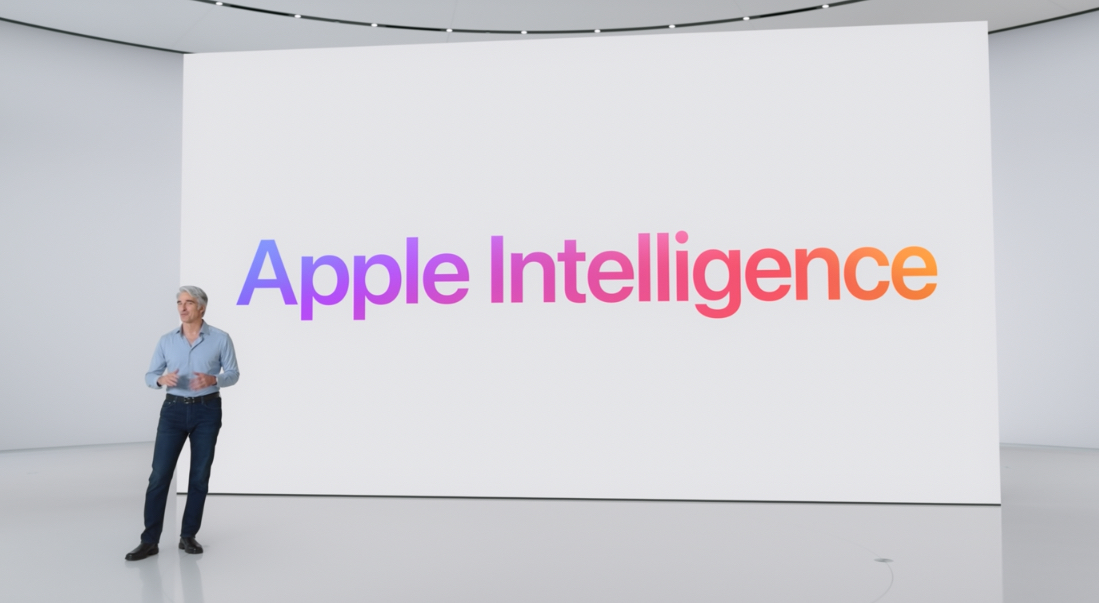
Those with capable-enough iPhones, iPads and Macs get it all for free. What’s crucial to me is this takes away most of the friction slowing wide-spread consumer adoption: ensuring privacy from a company with an emphatic history of protecting it; integrating AI throughout a wide range of popular programs and basic system functions; and making it free. Plenty of people and enterprises also will want to pay extra for specialized capabilities, but this both gets AI to mass adoption and drives what the analysts love to call a “super cycle” of purchases of new Apple phones and other devices that can run it all. I’ll be interested to see what this will mean for video, audio and writing creation in Apple’s own programs, as well as how it might improve interfaces and listening/viewing experiences on Apple TVs, TV Plus, Apple Music, Apple News Plus and other media-creation and consumption apps.
FRANKEL: So Crane Kenney, the business operations chief for the Chicago Cubs, told a local radio station this week that he expects his team's upcoming carriage renewal talks with Comcast for regional sports network Marquee Sports to be “bumpy.” Notably, Marquee is part-owned by Sinclair, which can rightfully be accused of running the RSN biz into the ground. But Sinclair certainly has help. All over America, Comcast seems to have absolutely no faith in this business anymore. Kenney summed it up nicely.
BLOOM: It’s easy to beat up on Sinclair (and I know you have), but their biggest sin was probably terrible timing. They bought the former Fox RSNs from Disney for too much money in August 2019.
Also read: Everything You Need To Know About the Bally Sports Bankruptcy
Seven months later, the pandemic shut down live sports. Worse, cord-cutting killed the business model. WBD literally walked away from its RSNs. The now-dead Pac-12 Network always struggled for carriage. Other independent sports services have limped along, too. The only semi-thriving RSNs seem to have two kinds of owners: the local cable provider, and a superstar team like the Dodgers or Lakers. It is surprising that the Cubs, another nationally popular franchise, expect renewal headaches from Comcast. Sinclair/Bally's may have burned (a lot of) bridges, but the real challenge is creating a local sports-TV service for our new era. I'd watch closely what happens with the Yankees YES network, where Amazon has a stake and distributes a small number of games in the region.
FRANKEL: Shortly before Sinclair’s RSN management subsidiary, Diamond Sports, Group filed for bankruptcy, I read Baseball Prospectus author Daniel Epstein's uber-insightful posting headlined “Sinclair Prioritizing Buybacks Over Baseball Hurts Fans the Most.” Wrote Epstein: “Just like the death of Toys ‘R’ Us was blamed on Amazon and the Internet marketplace, RSNs going bankrupt will be tied to cord-cutting and the decline in cable subscriptions. In fact, that yarn is already being spun. ... One would think the company would have been setting money aside to meet its financial obligations, just like we were taught in kindergarten. Instead, Sinclair spent $120 million on stock buybacks in 2022, and they’re authorized for another $704 million in future buybacks.” Epstein cited Sinclair CEO Chris Ripley's 2021 compensation, which totaled $15.5 million.
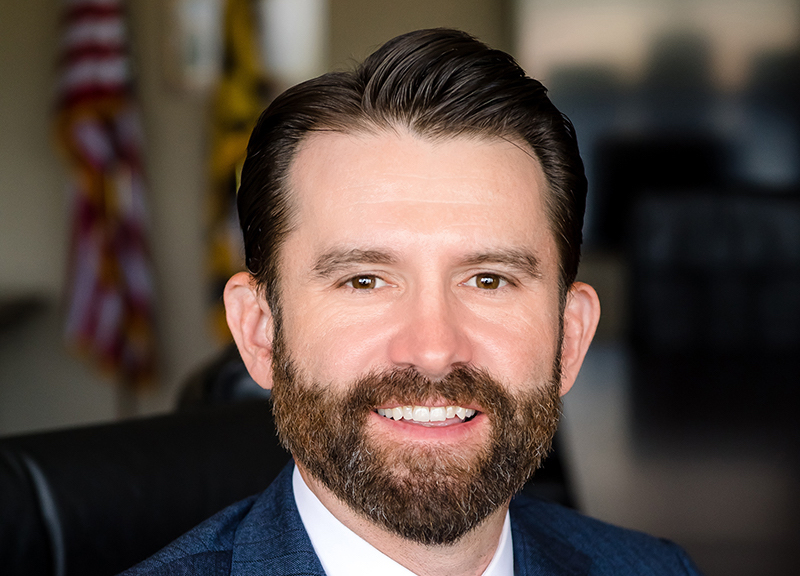
BLOOM: Maybe Mr. Beast, the top YouTube influencer with 279 million subscribers, can step in. Puck and Business Insider quoted court papers that show the 26-year-old Jimmy Donaldson expects to gross $700 million in revenue this year, up from 2023's $223 million. His side business ventures include MrBeast Burger, the Feastables chocolate and snack brand, a philanthropic organization, and (those guys again), a reality competition on Amazon. Donaldson makes money from licensing, syndication, sponsorships, an international dubbing studio, and an analytics platform. He has multiple YouTube channels, including French-, Spanish-, Russian- and Arabic-language ones. Maybe Paramount should go Beast Mode. Donaldson certainly seems to know more about running a successful set of interconnected businesses in this media era.
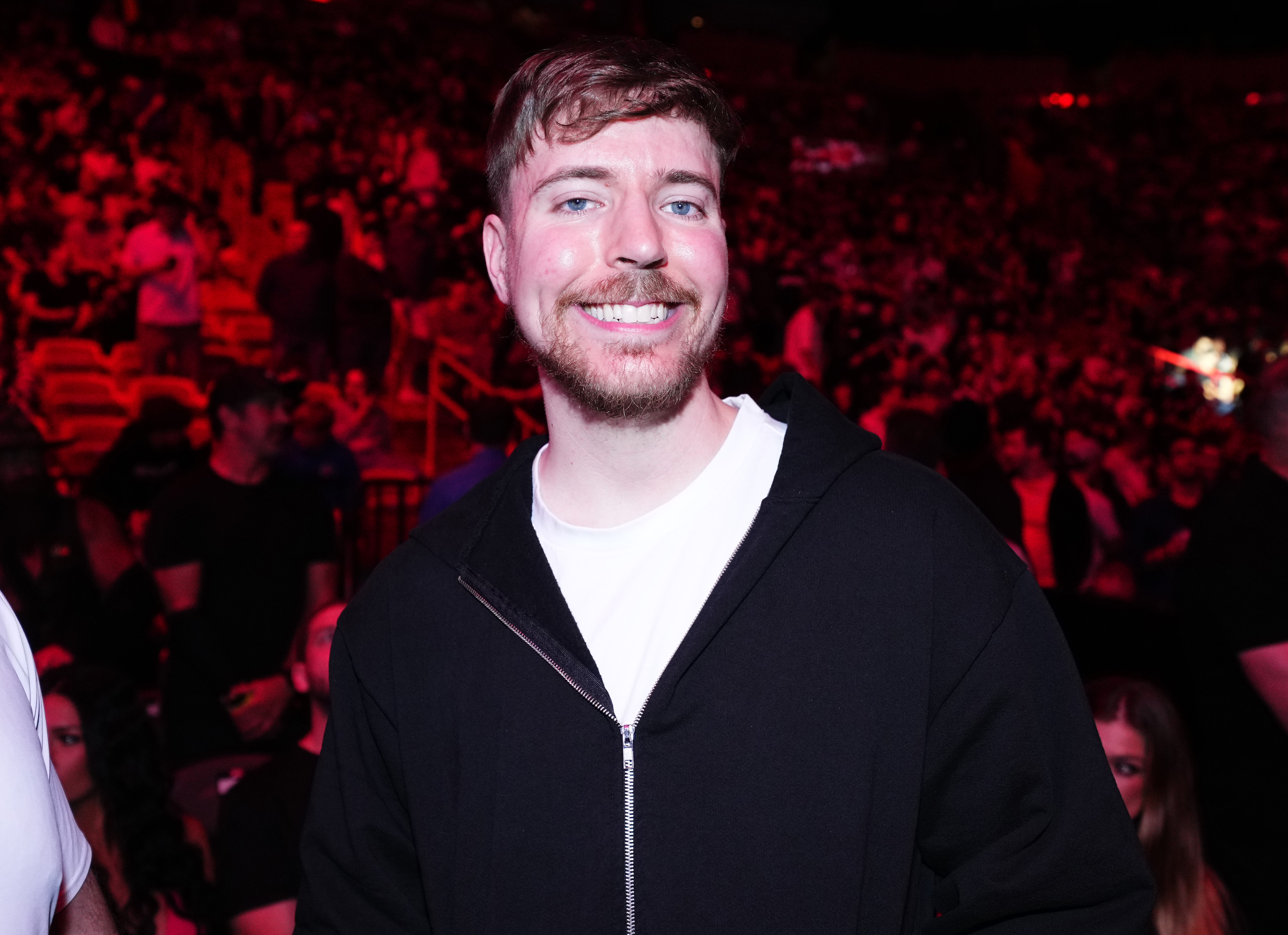
FRANKEL: What do you make of Charles Barkley's retirement proclamation? I can't say I'm buying it. He's only 61. Given his expressed loyalty to TNT's Inside the NBA crew, it feels more like a negotiating position versus the NBA to me. Did David Zaslav talk him into some kind of alliance? This rather incendiary May 23 appearance on Dan Patrick’s podcast several weeks ago revealed a fairly close, emotional, long-standing relationship with the production crew.
BLOOM: Kinda doubt Zaslav has walked back the Chuckster in some grand switcheroo, given Barkley’s, ahem, piquant descriptions of WBD leadership talent. For now, I'll take Barkley at his word, though mid-2025 is far away, and lots can happen. Maybe Zaslav jawbones Redstone, or the Cerberus three-heading Paramount, to sell him CBS and its broadcast stations for, say, $10 billion sometime in the next week. Then he goes to the NBA and says, “Hey, we can match Comcast/outmatch Amazon now that we have cable distribution and a broadcast network!” That gives Chuck a job in 2026 among his same old crew and their now adult children. Or, and this is Occam's razor again, WBD poor-mouths its way out of the NBA, and semi-fills the gaping hole in its Venu contributions and cable renewal negotiations by picking up random other sports rights. Barkley heads off to play golf and do commercials. After about 18 months, someone steps up with a hefty package to entice him out of “retirement.” I'm not a betting man, but were I so, that's where I'd lay the money.







